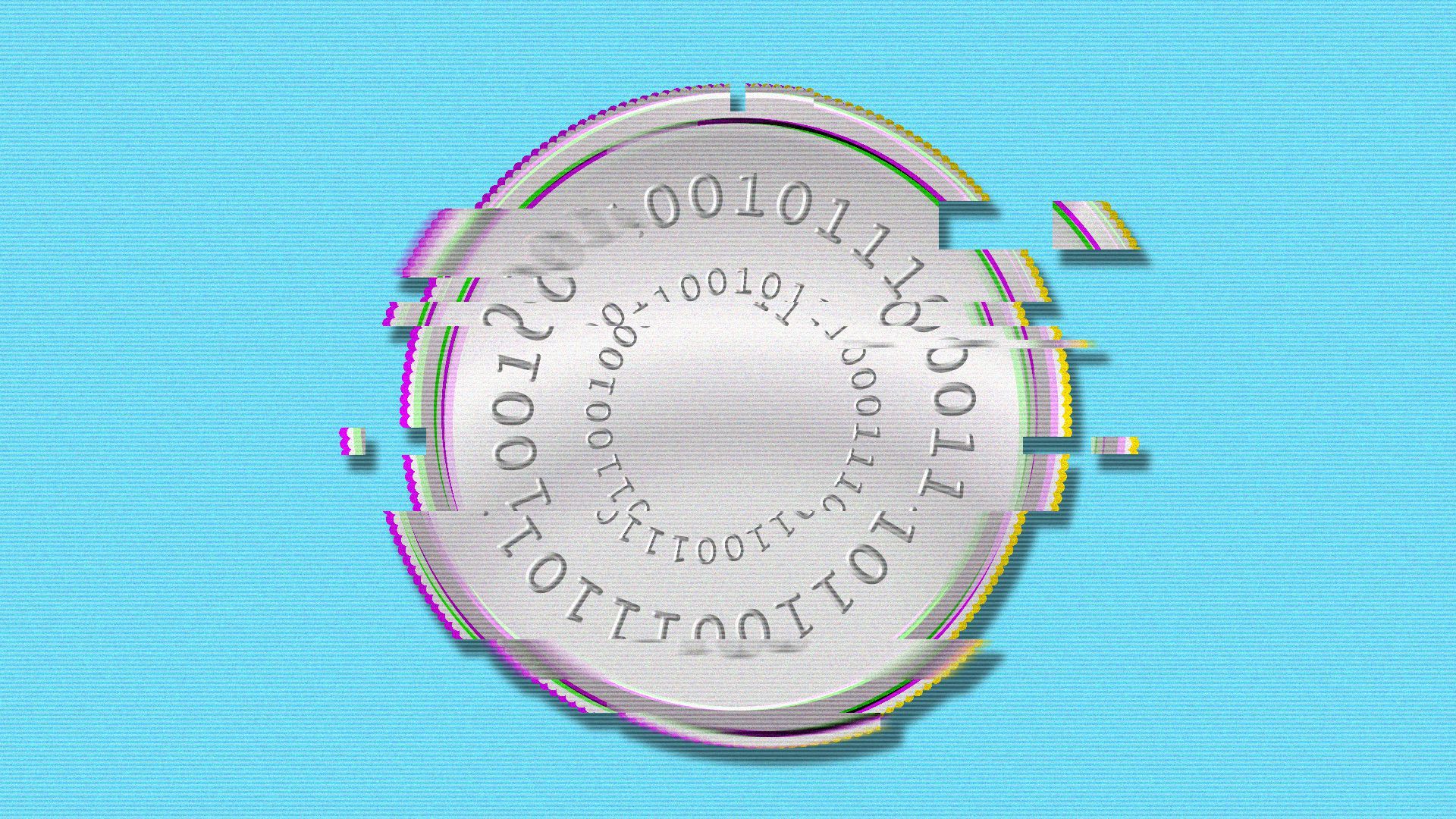MakerDAO narrowly votes to keep holding Gemini's stablecoin
Add Axios as your preferred source to
see more of our stories on Google.

Illustration: Gabriella Turrisi/Axios
With Digital Currency Group's Genesis crypto lending unit said to be on the brink of a bankruptcy filing, a group of folks reassessed the risk associated with one stablecoin in the mix: the U.S. dollar-pegged Gemini Dollar.
Driving the news: Members of MakerDAO, a decentralized finance protocol that holds roughly 85% of Gemini Dollar's (GUSD) market capitalization, just voted by the narrowest of margins to maintain its holdings.
Context: GUSD is issued by Gemini, the crypto exchange owned by Cameron and Tyler Winklevoss.
- Gemini currently owes around $900 million to customers in its Earn program, an issue for which it blames its partner in that program — Genesis.
Zoom out: If Genesis' ends up collapsing and takes Gemini down with it, the question is whether GUSD holders would be protected.
- Chapter 11 cases involving crypto platforms in the U.S. have not yet tested what protections are afforded to exchange-issued U.S.-dollar-backed stablecoins.
What they're saying: Tyler Winklevoss on Monday tried to soothe MakerDAO delegates saying "the issues related to Earn do not impact any other Gemini products," in a missive posted to their forum.
- Winklevoss claims that GUSD reserves are held in accounts at U.S. FDIC-insured banks, which include money market funds and U.S. Treasury notes.
- He says the cash portion of GUSD reserves may be held at Signature Bank, which recently said they would shed some $10 billion in deposits, or Silvergate Bank, which recently said they were trimming non-core customers or State Street.
- That cash "may be eligible for FDIC "pass-through" insurance for Gemini customers, Winklevoss said.
Yes, but: It's a big "IF" whether a GUSD holder might qualify for pass-through insurance, according to Steven Kelly, senior research associate at the Yale Program on Financial Stability.
- It would be at the discretion of the FDIC to apply "pass-through," and so far they haven't been keen, in part due to the rash of crypto firms' falsely advertising coverage, he says.
The big picture: GUSD isn't used very much besides on the Gemini platform and MakerDAO, which makes it highly illiquid relative to other dollar-pegged stablecoins.
- "The worst case scenario would involve troubles at Gemini that cause a delay in redemptions," according to Kaiko Research's Riyad Carey.
The bottom line: In the event that illiquidity prompts fear, GUSD could temporarily deviate from its peg. MakerDAO appears to be taking that risk for the 1.25% yield.
